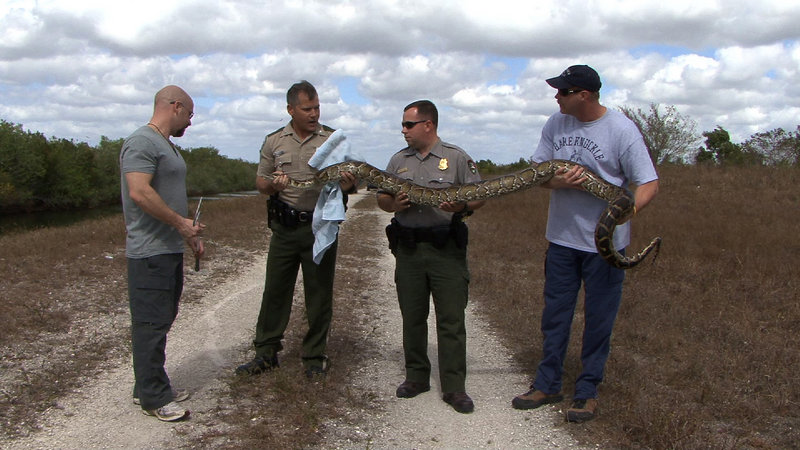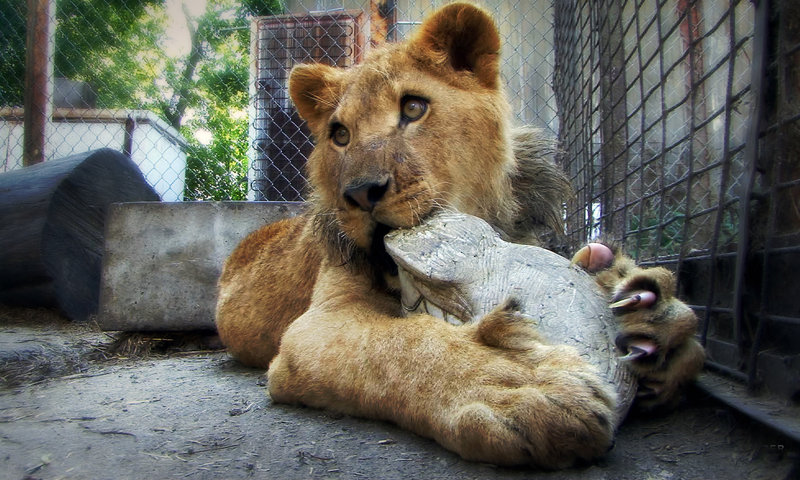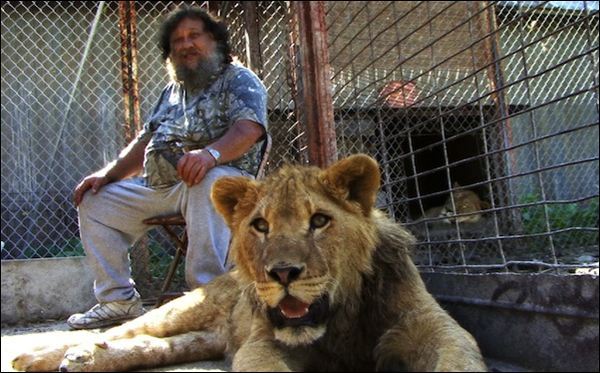When I visited the Maine Wildlife Park in Gray and read that one of their mountain lions had once been kept as a pet, I assumed that was something unusual.
Now I know better.
“The Elephant in the Living Room,” a gripping, thought-provoking documentary from director Michael Webber, explores the shockingly thriving subculture of those who own and sell exotic animals in America.
Focusing on the conflict between Tim Harrison, a public safety officer and rescuer/capturer of neglected and escaped dangerous animals, and Terry Brumfield, a depressed, physically disabled man devoted to his pet African lions, the film presents a thoughtful, clear-eyed and often intense portrait of an exotic and dangerous world — one that may be right next door.
Webber recently spoke to GO about his film, which screens at the Portland Museum of Art at 6:30 p.m. April 22 and 2 p.m. April 23-24.
What drew you to this subject?
I read two books by Tim Harrison and approached him. Tim’s the ultimate American hero, as American as you can be. Born on the Fourth of July, in the martial arts hall of fame, a cop, EMT and firefighter. He gets paid for those, but not for rescuing these animals and people. A very humble, loving, caring guy who risks his life daily.
The Tim/Terry relationship/conflict at the center of your film presents a more nuanced view of the film’s central issue than, say, a more didactic documentary would.
I came at it as a filmmaker, not an animal rights activist. When people think of a documentary, they think they’re going to be taught some sort of lesson, that there’s an agenda. Nothing wrong with those things, but they don’t interest me as much as characters and taking people into a world that they’ve never seen before, to fairly and accurately tell both sides of the story through these two characters.
When someone tries to tell me what to think, it’s a turnoff. Even to myself, the movie poses a lot of questions.
In the film, a doctor who works in Africa states that he sees many more dangerous animal attacks in America than where such animals naturally live. Why do you think Americans choose to take such animals into their homes?
We’re educated by television. We see them on a leash on a late-night show, we imagine them in a circus doing tricks. That’s the context of how we see them on a daily basis growing up. So it’s no surprise that people see that and think, “I want one.” They’re cute, they’re legal, they’re easily attainable and it’s cool. Why wouldn’t you get one? I’m as guilty of it as anyone else.
How have more extreme animal rights groups like PETA reacted to the film?
I’ve received criticism from animal rights groups because of the film: How dare I have scenes that show people enjoying their exotics? My agenda is simple: to make a great film, to tell an interesting story with great characters that’ll make you laugh and cry and that you’ll take away with you and you’ll talk about for days. I think part of the solution is recognizing the elephant in the living room, so to speak, and talking about it. People in the film have agendas and strong points of view, but the film does not. I let them express their opinions and see both sides, but when you see the film, it’s not the voice of an agenda. Sometimes when you tell the truth, it’s just damning.
Dennis Perkins is a Portland freelance writer.
Send questions/comments to the editors.




